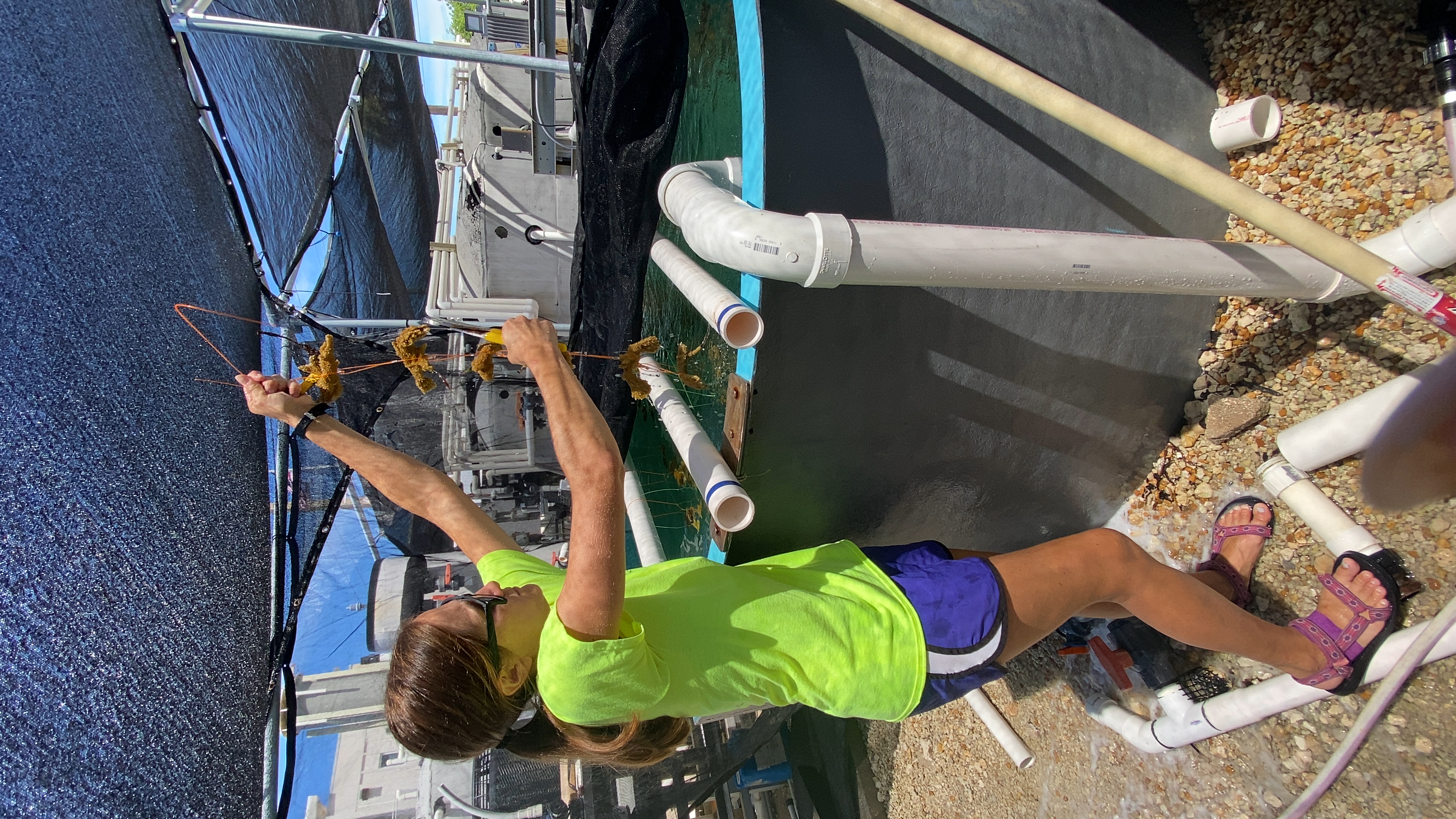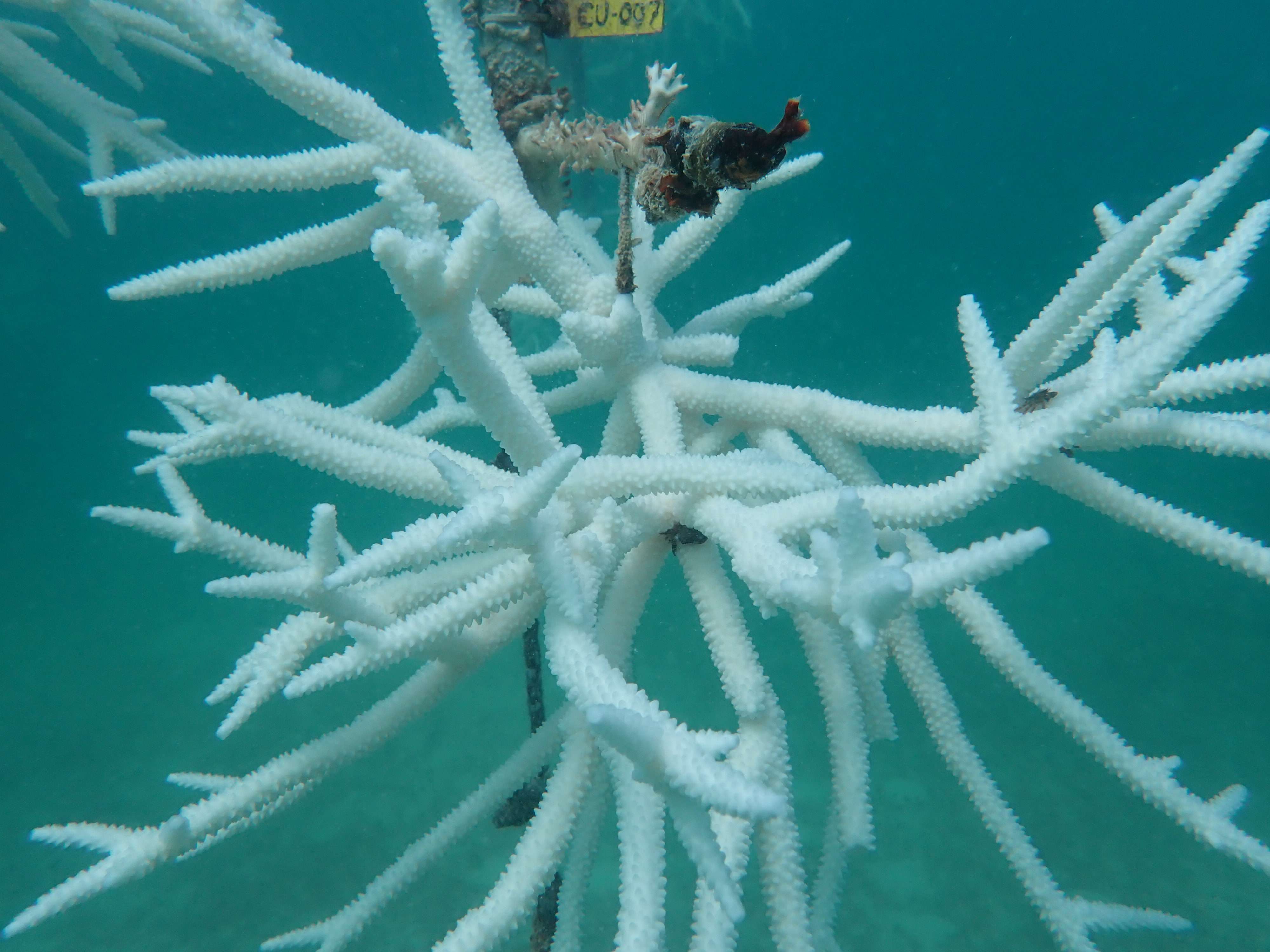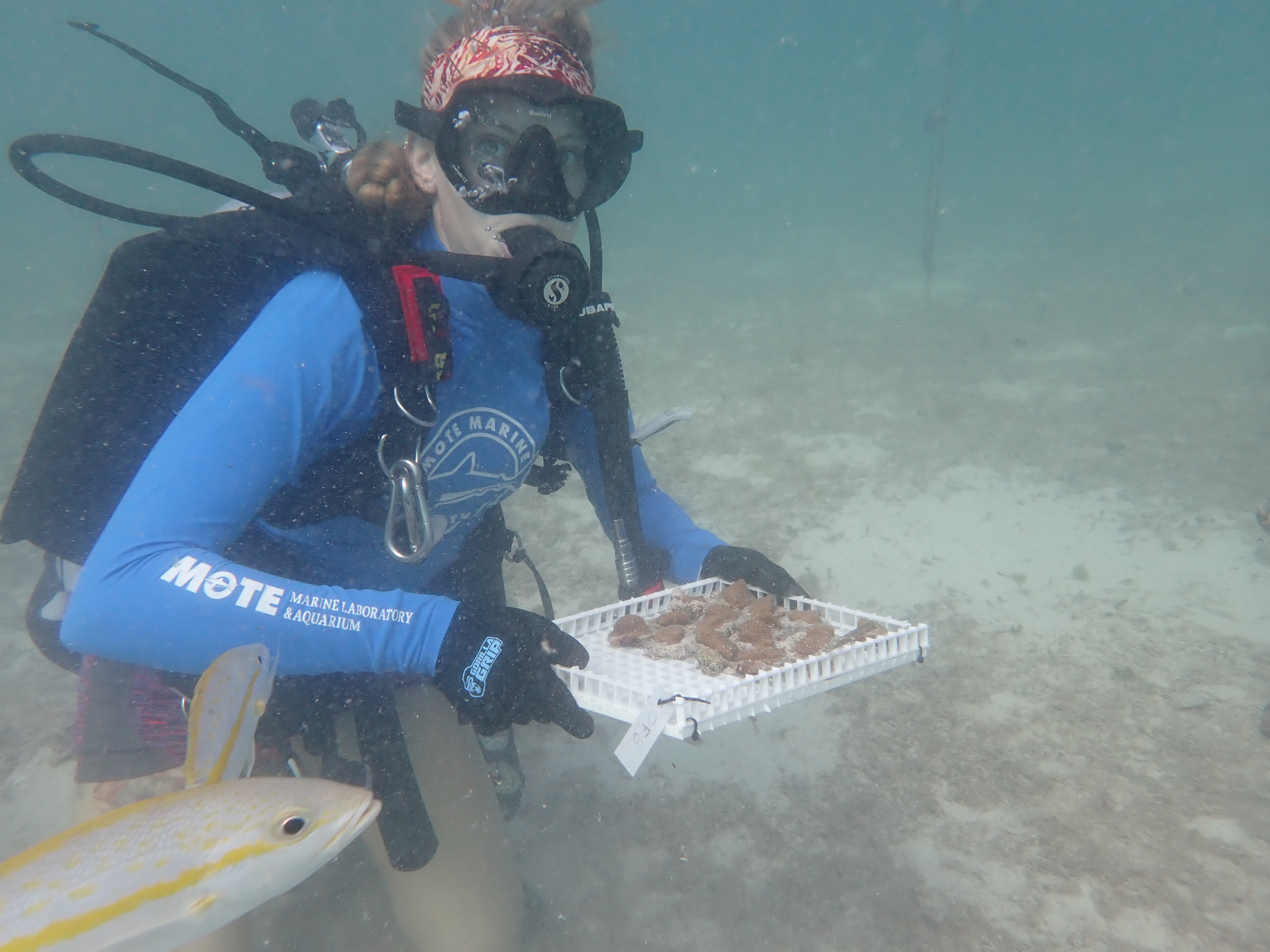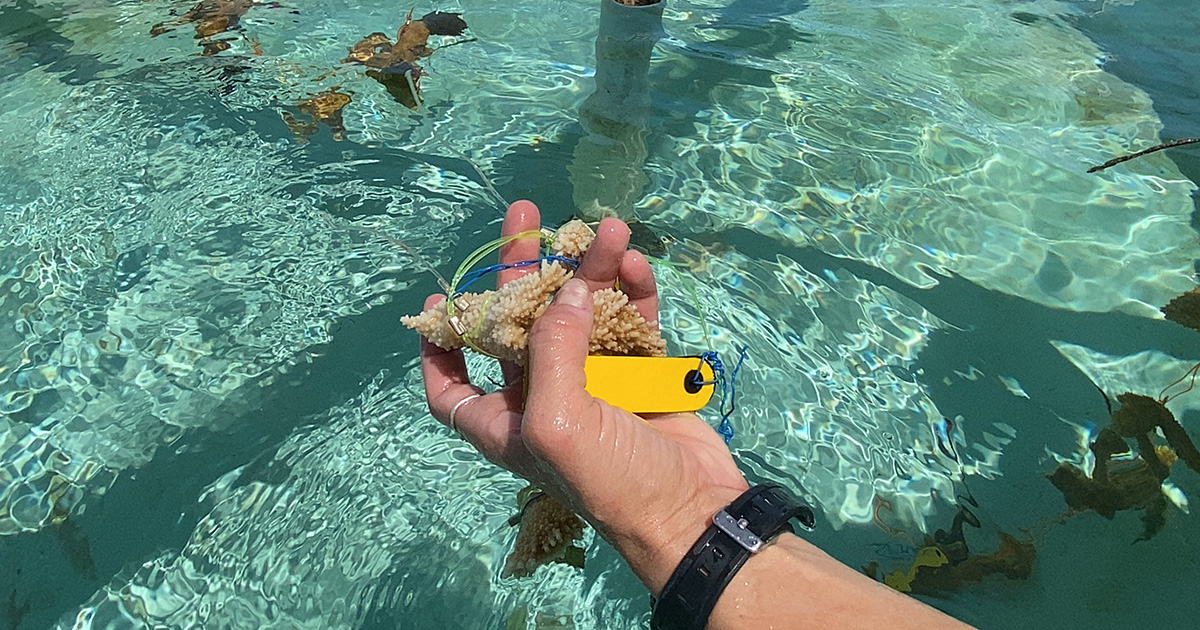As Florida’s Coral Reef experienced record-breaking heat waves starting in July, with temperatures in adjacent backreef areas reaching temperatures above 100°F, Mote Marine Laboratory immediately began an unprecedented evacuation of thousands of stressed and dying coral from its four offshore coral nurseries.
When waters stay too hot (>87°F) for too long, many corals in Florida, and around the world, become stressed and can expel the algae, called zooxanthellae, living inside their tissues. These algae give coral its beautiful color, but they also provide the coral with food. Without it, the coral appear white, as if bleached (hence the term coral bleaching), and could potentially die if the stress persists for too long.
With the help of over 70 staff members, six Mote research vessels, and immense support from the Keys community, Mote was able to carefully transport thousands of stressed and dying corals from its offshore nurseries in Sand Key, Looe Key, Islamorada, and Key Largo, in a matter of days to its three land-based coral nurseries in Summerland Key, Key Largo, and Islamorada, as well as to its 200-acre Sarasota-based Mote Aquaculture Research Park (MAP). Expert staff are working diligently to aid in the recovery of these stressed and dying corals with a goal of saving at least a portion of them despite exposure to the extreme water temperatures of over 90°F.
“Mote has invested in science-based coral reef restoration and research in the Keys for nearly 30 years and, as such, we were equipped with the land-based infrastructure to provide tens of thousands of corals a safe place to grow until conditions improve on the reef,” said Dr. Michael Crosby, Mote President and CEO. “But, an evacuation this large, which to my knowledge has never been done before due to the sheer number of corals Mote has been able to produce and pre-position in offshore nurseries for subsequent restoration outplanting, would not have been possible without the continued strong support of the Keys community. We want to thank everyone who answered our calls for help without hesitation, in many cases in the middle of the night, and aided in this historic event.”
 Dr. Grace Klinges relocating Elkhorn coral from one of Mote's four underwater coral nurseries to its land-based nursery in Summerland Key. (Image credit: Mote)
Dr. Grace Klinges relocating Elkhorn coral from one of Mote's four underwater coral nurseries to its land-based nursery in Summerland Key. (Image credit: Mote)
Keys Community Offers Support of Mote’s Coral Evacuation
- Divers from Scubapro were trained by Mote staff, performed a BleachWatch survey and aided in Mote’s precise process for evacuating corals.
- The Marina Club at Blackwater Sound provided Mote with free boat dockage for a research vessel that was sent to the Upper Keys.
- Perry Inn and Marina on Stock Island provided boat slips and served as an offloading site for evacuated corals.
- Opal Collection in Key West provided Mote staff and boat captains with lodging at the last minute despite having high demand during lobster season
- Opal Collection’s Reefhouse Resort, the Keys History & Discovery Center, and Florida Keys Country Club have all donated space for BleachWatch training events.
- The College of the Florida Keys Upper Keys Center allowed Mote to use their parking lot for overnight boat trailer storage
- Billie's Stone Crab Fisheries in Summerland Key, owned by Brian Hershey and Captain John Johnson, loaned Mote insulated fish crates that were critical in transporting corals.

Details of an Unprecedented Evacuation and Unique Opportunity for Further Research
Immediately following the extreme high-water temperatures within and surrounding Mote's in water coral nurseries throughout the Keys, and the subsequent bleaching documented within Mote's Looe Key coral nursery in mid-July, Mote began implementing a strategic relocation of stressed and dying corals from its in-water infrastructures to its land-based coral nursery facilities at four of its campuses in both the Keys and Sarasota.
Specifically, Mote carefully transported corals from its Key Largo and Islamorada in-water nurseries to its two corresponding land-based nurseries at Reefhouse Resort & Marina in Key Largo and Bud n’ Mary’s Marina in Islamorada.
Mote also carefully transported coral from its Looe Key in-water nursery, and coral from its Sand Key nursery, to its land-based nursery on Summerland Key at its Elizabeth Moore International Center for Coral Research & Restoration (IC2R3).
Because of this unprecedented high number of evacuated corals from Mote’s off-shore coral nurseries, demand quickly exceeded available space in its certified land-based nursery facilities in the Keys. Fortunately, Mote also has a massive recirculating seawater facility supporting both the International Coral Gene Bank and the new Florida Coral Reef Restoration Crab Hatchery Research Center, located 13 miles inland at Mote’s Aquaculture Research Park in Sarasota, which has more than enough capacity to accommodate all living corals from its in-water nurseries that can’t be housed in our Keys facilities, as well as the remaining corals in its Keys land-based facilities in the event of any subsequent hurricane evacuation.
“Mote scientists are also using this unusually high seawater temperature event to conduct a number of studies at both our off-shore nurseries and restoration sites throughout the Keys,” said Dr. Crosby, “to help significantly enhance genetic resiliency research that will, ultimately, increase survival of outplanted coral in our broader ten-year Florida Coral Reef Restoration Initiative.”

As part of this effort, Mote is strategically keeping, and continuing to closely monitor, representative samples of each coral genotype in its offshore nurseries to evaluate how those different genotypes respond to, and potentially recover from, such unprecedented extreme temperature stress in nature.
What’s Next?
Mote has been studying coral ecosystems for decades and is an international leader in the development of innovative and effective coral reef restoration technologies, including a recent breakthrough in identifying natural coral genotypes that are resilient to increased ocean temperature, acidification, and disease.
“Coral reefs are experiencing unprecedented die-offs worldwide, and it’s critical to restore them with resilient and genetically diverse corals that have the best chances to survive and reproduce,” said Dr. Jason Spadaro, Mote's Coral Reef Restoration Research Program Manager. “Now is not the time to give up, now is the time to ramp up resilience-based restoration efforts and embrace the challenge. We aren’t doing this work because it is easy or fun, we are doing it because it is critical and incredibly challenging.”



